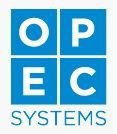UNESCO Seeks to Support the Young Digital Citizens of Asia-Pacific
BANGKOK, Jan. 20, 2020 /PRNewswire/ -- Children today are growing up in a technology-driven world. Now, they need support in their exploration of the various ICT tools available to them so they grow up to be future-ready. UNESCO Bangkok's Digital Kids Asia-Pacific (DKAP) provides an evidence-based, child-centered and holistic approach to the development of policies and interventions that support children's digital citizenship.
DKAP aims to support Member States in developing interventions that promote children's safe, effective and responsible use of ICT as part of Sustainable Development Goal 4 "Quality Education." The DKAP Framework for Education (DKAP Framework), anchored across five domains and 16 competencies of digital citizenship, can be assessed through conducting a comprehensive, adaptable, freely available survey. The survey was validated with 5,129 15-year-old students in Viet Nam, Fiji, Bangladesh, and Republic of Korea. The findings can be found in the regional report about what we learned about children's online practices and the gaps and opportunities in educating the next generation about digital citizenship.
The full regional report entitled "Digital Kids Asia-Pacific: Insights into Children's Digital Citizenship" captures the results of the DKAP survey. It was officially launched in UNESCO's office in Bangkok last May 2019. Currently, the DKAP Framework and survey tools are being used by the governments of Bhutan and Thailand, and in schools in the Philippines, Viet Nam, and Singapore.
DKAP is supported by Korean Funds-in-Trust and in partnership with Google, Institute of School Violence Prevention, International Telecommunications Union, SEAMEO INNOTECH, TOUCH Cyber Wellness, and UNICEF. Learn how to get involved by visiting dkap.org.
Media Contact
Jian Xi Teng
Programme Officer - UNESCO ICT in Education
jx.teng@unesco.org
View original content:http://www.prnewswire.com/news-releases/unesco-seeks-to-support-the-young-digital-citizens-of-asia-pacific-300989433.html
SOURCE UNESCO Bangkok




